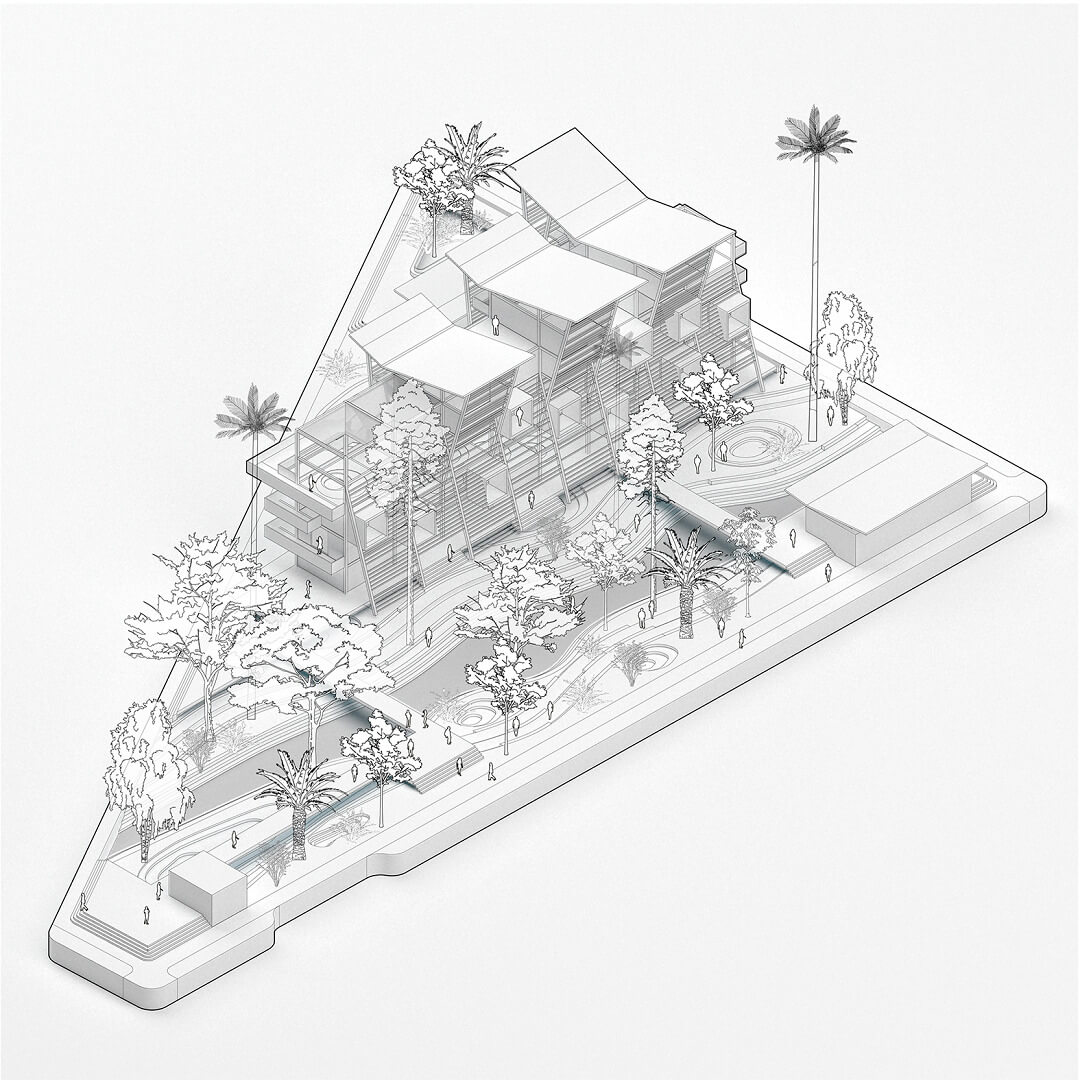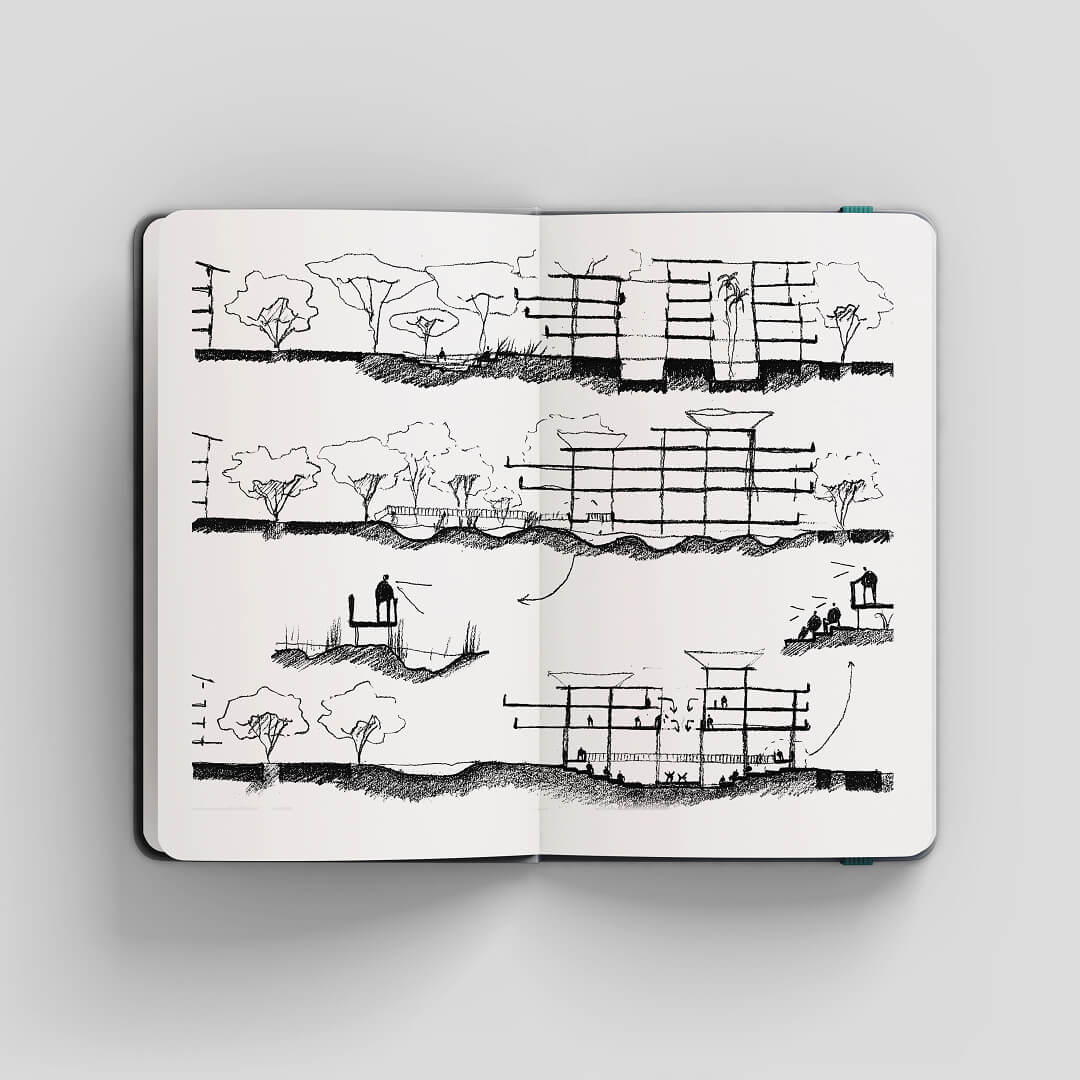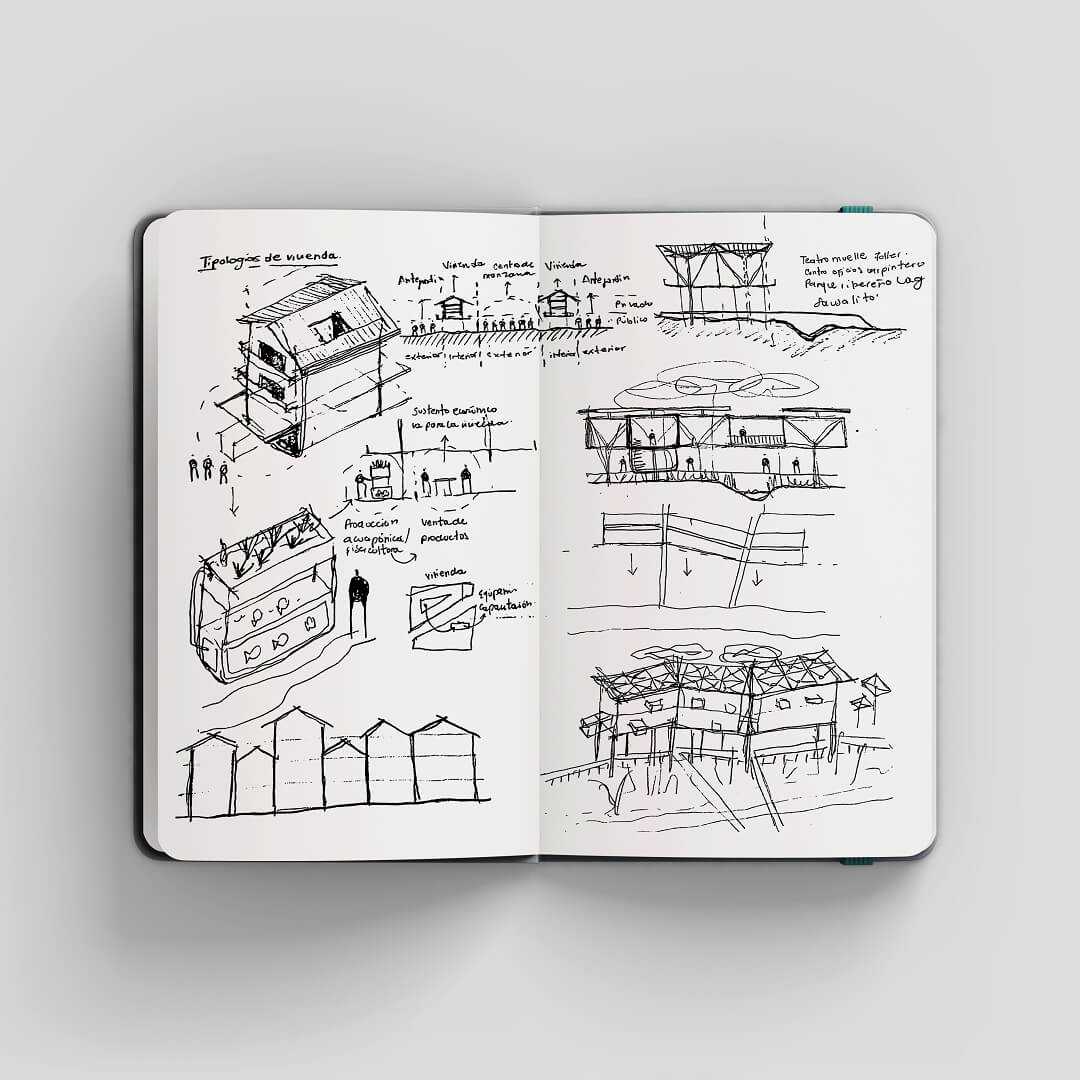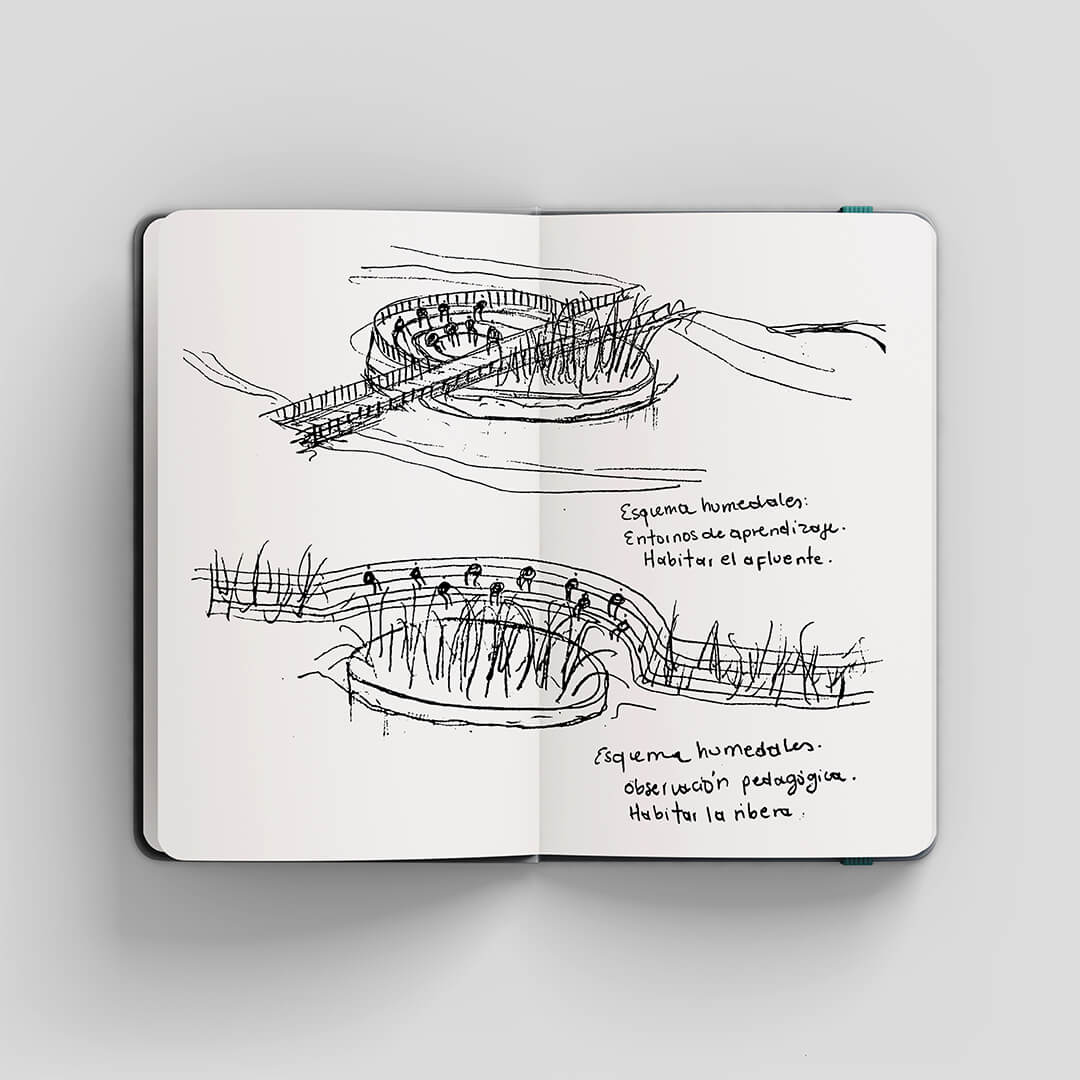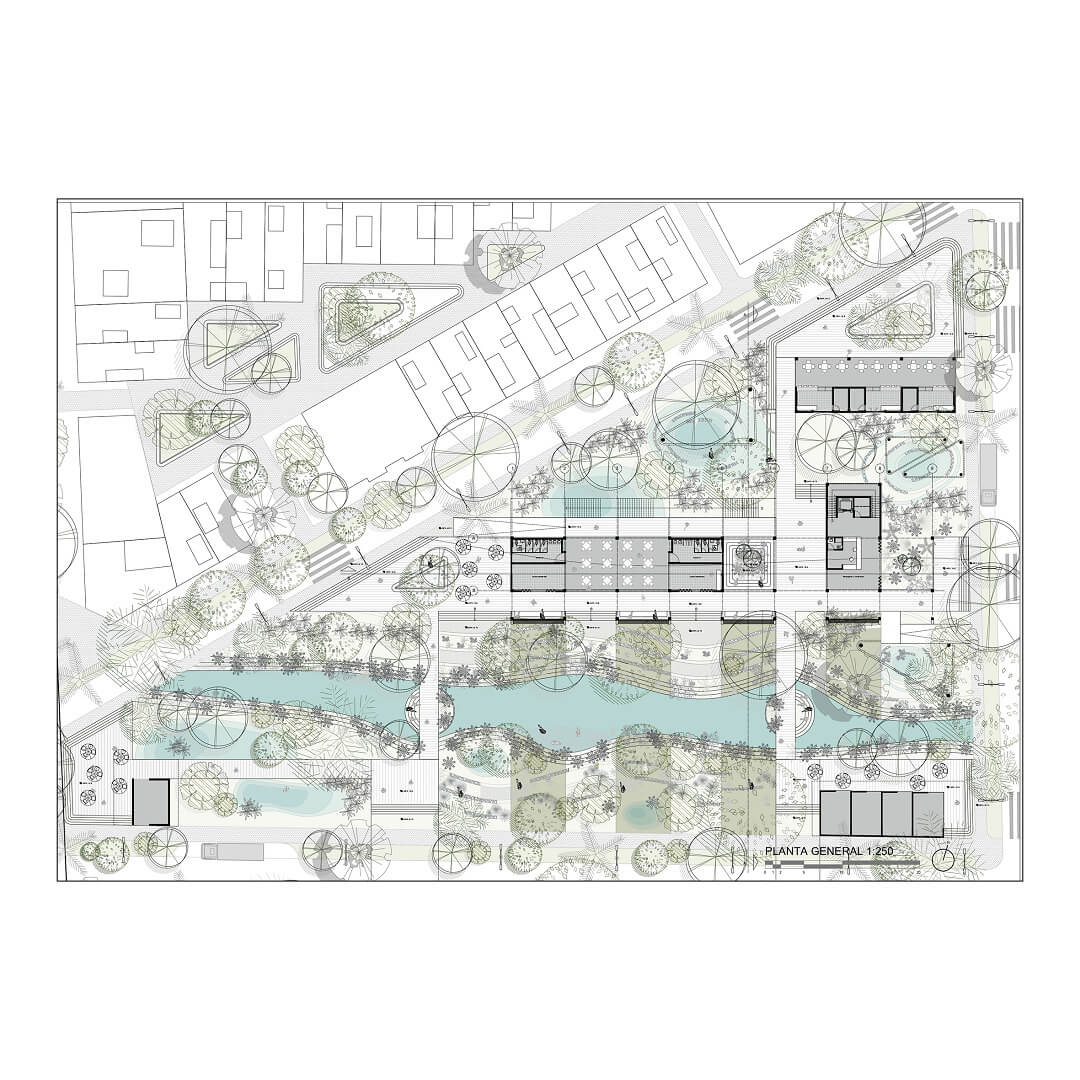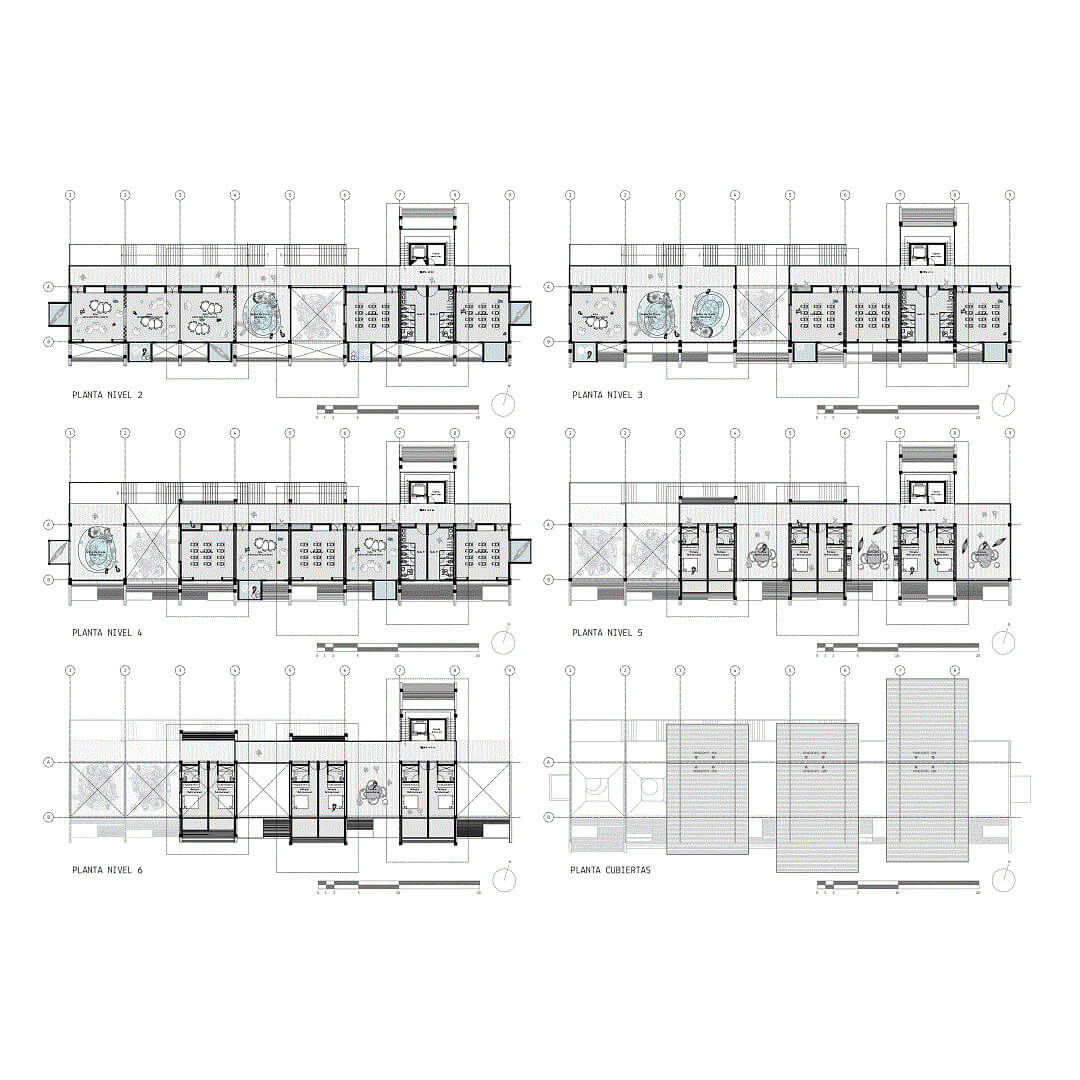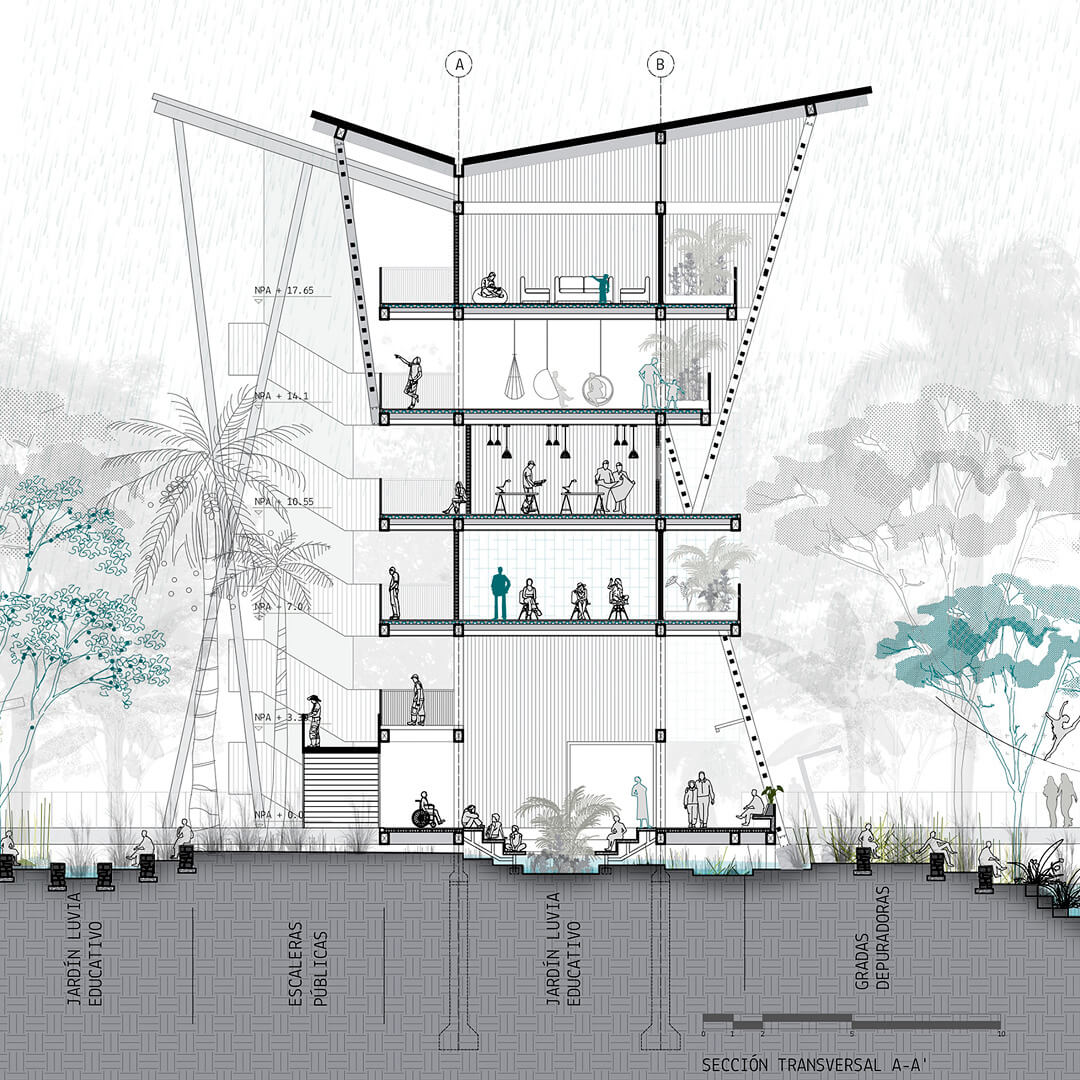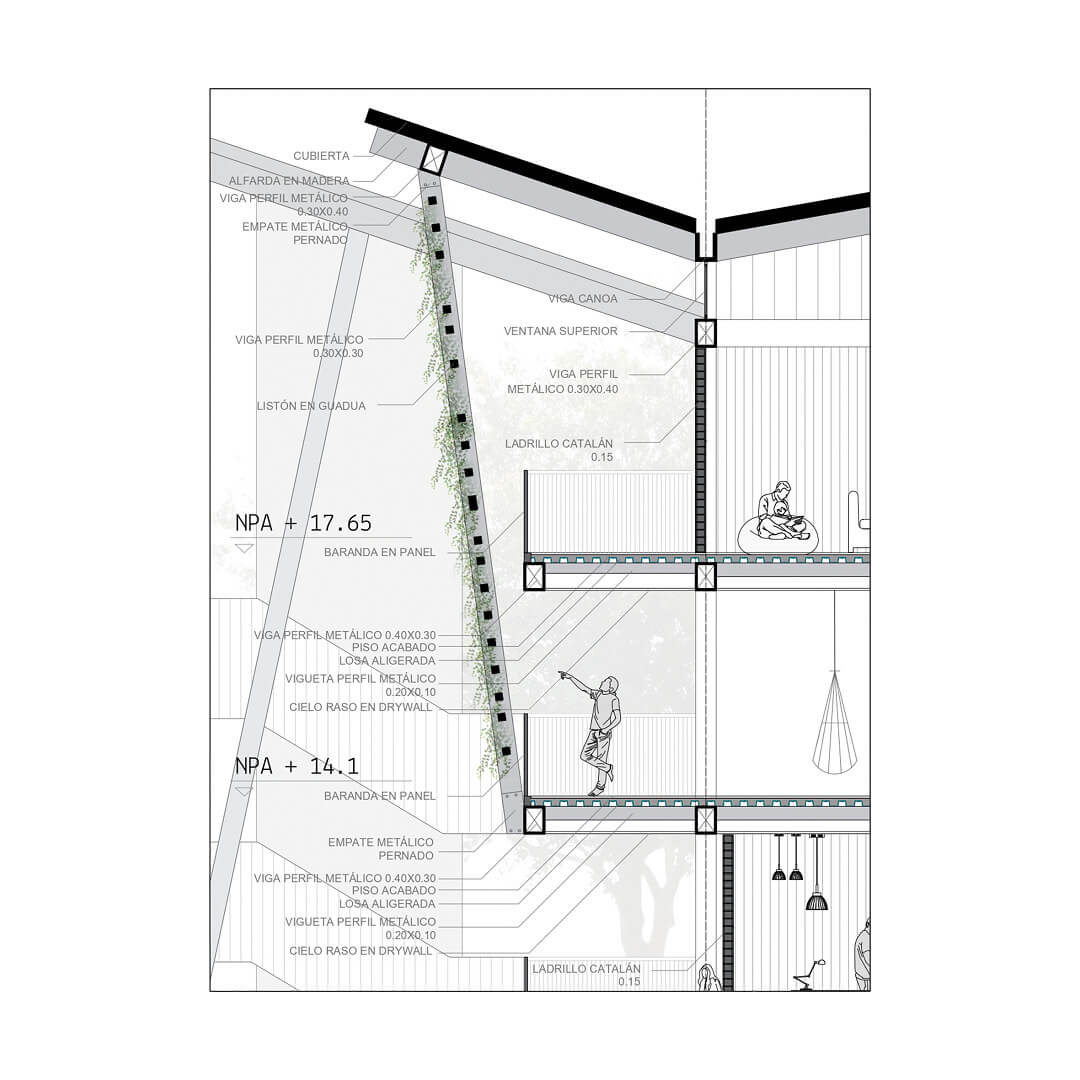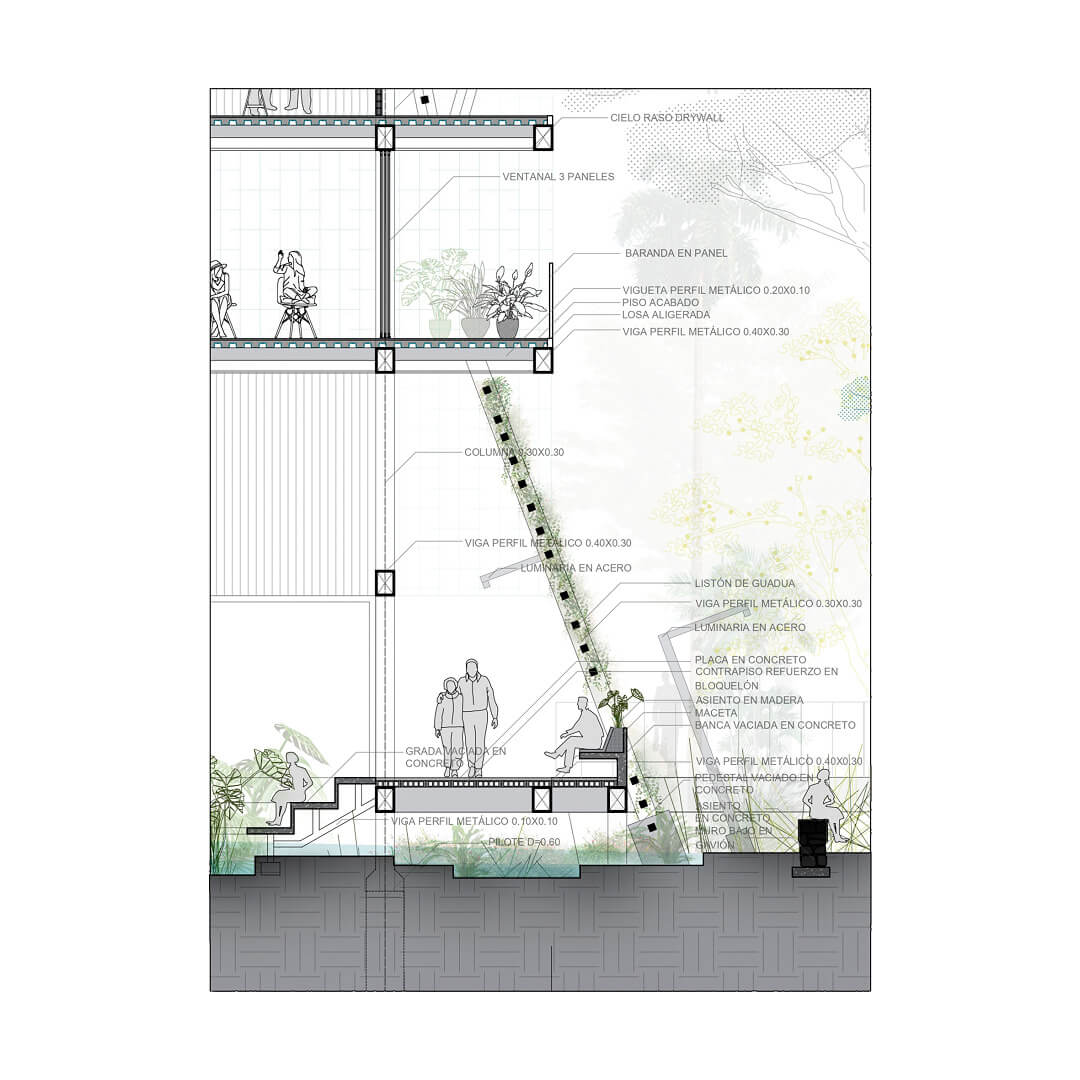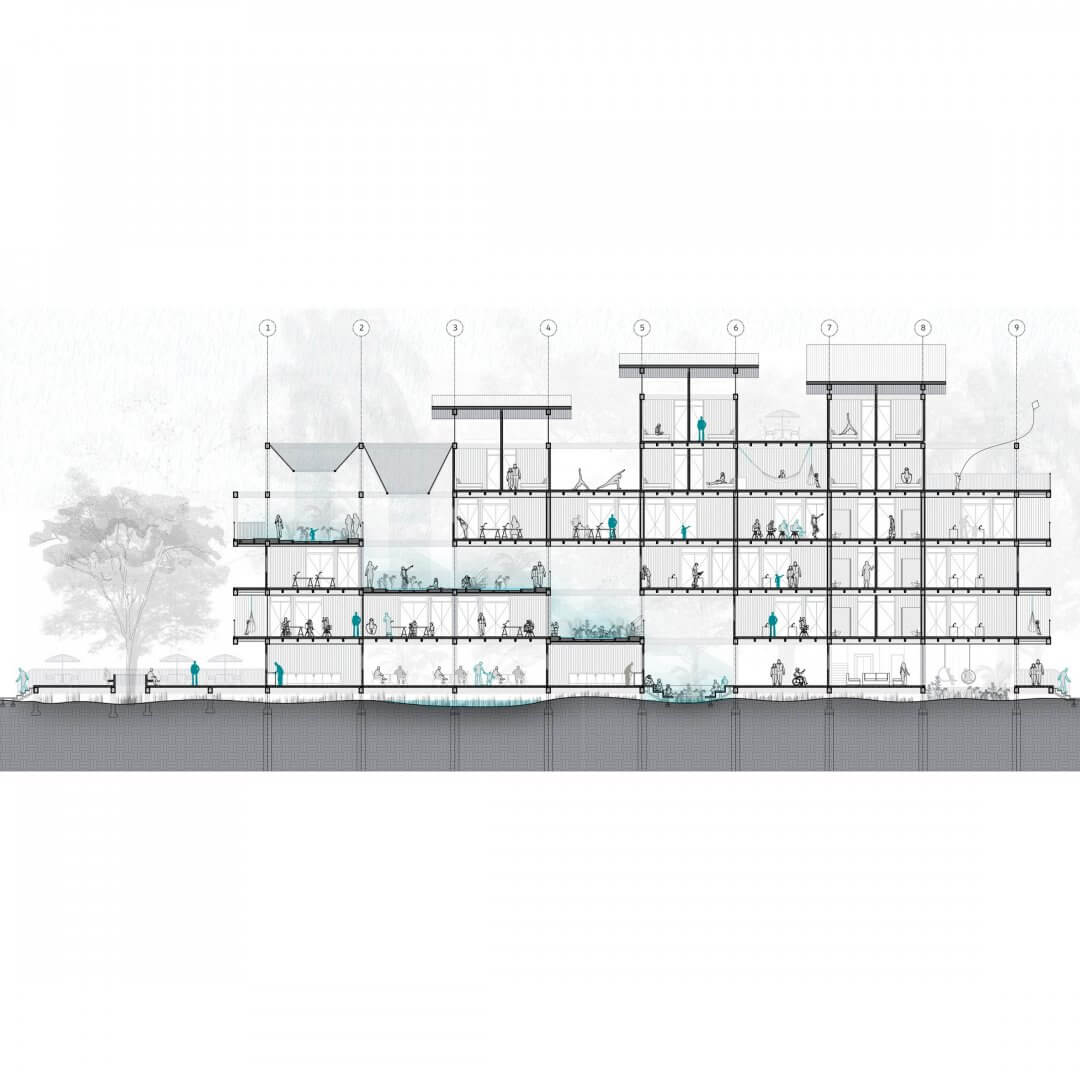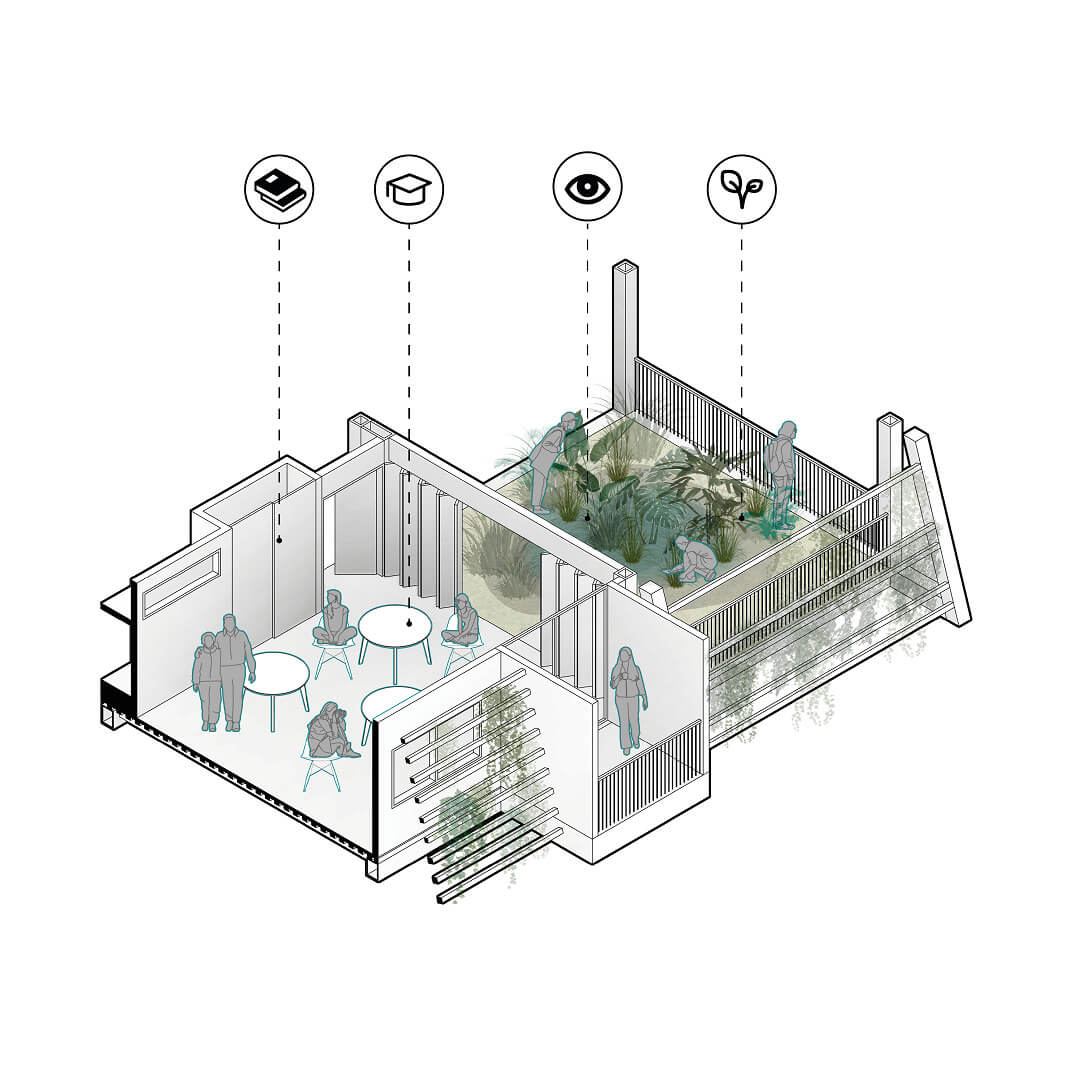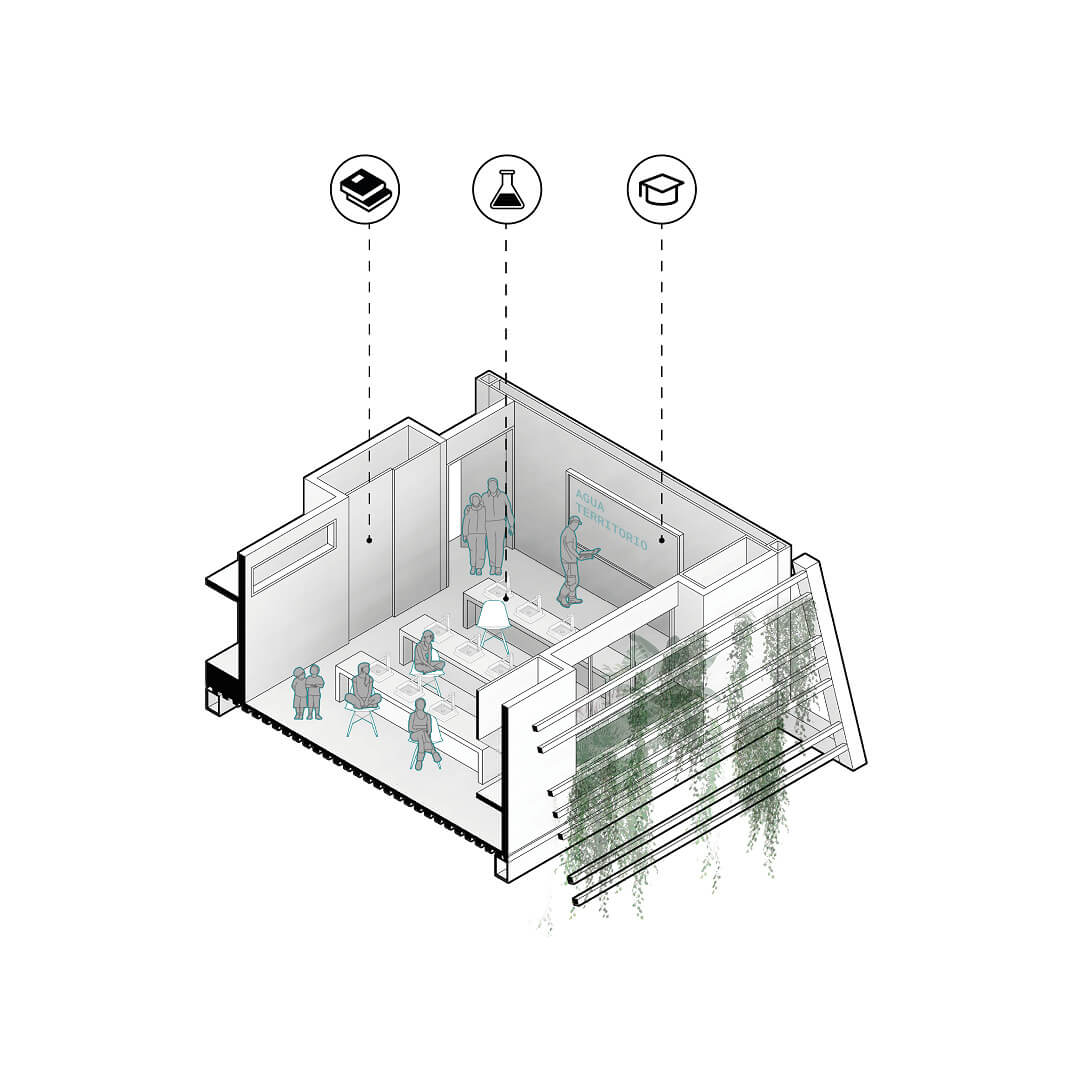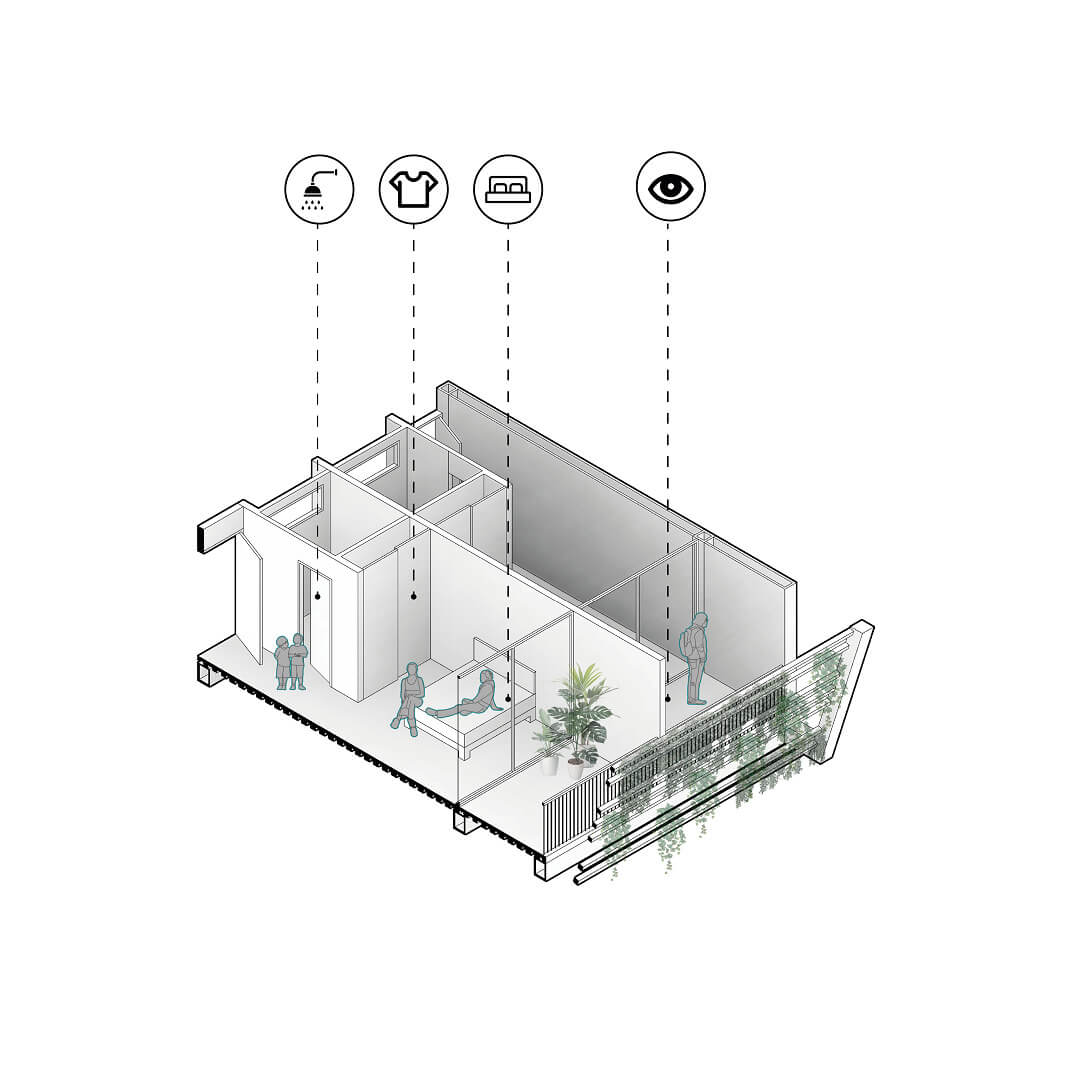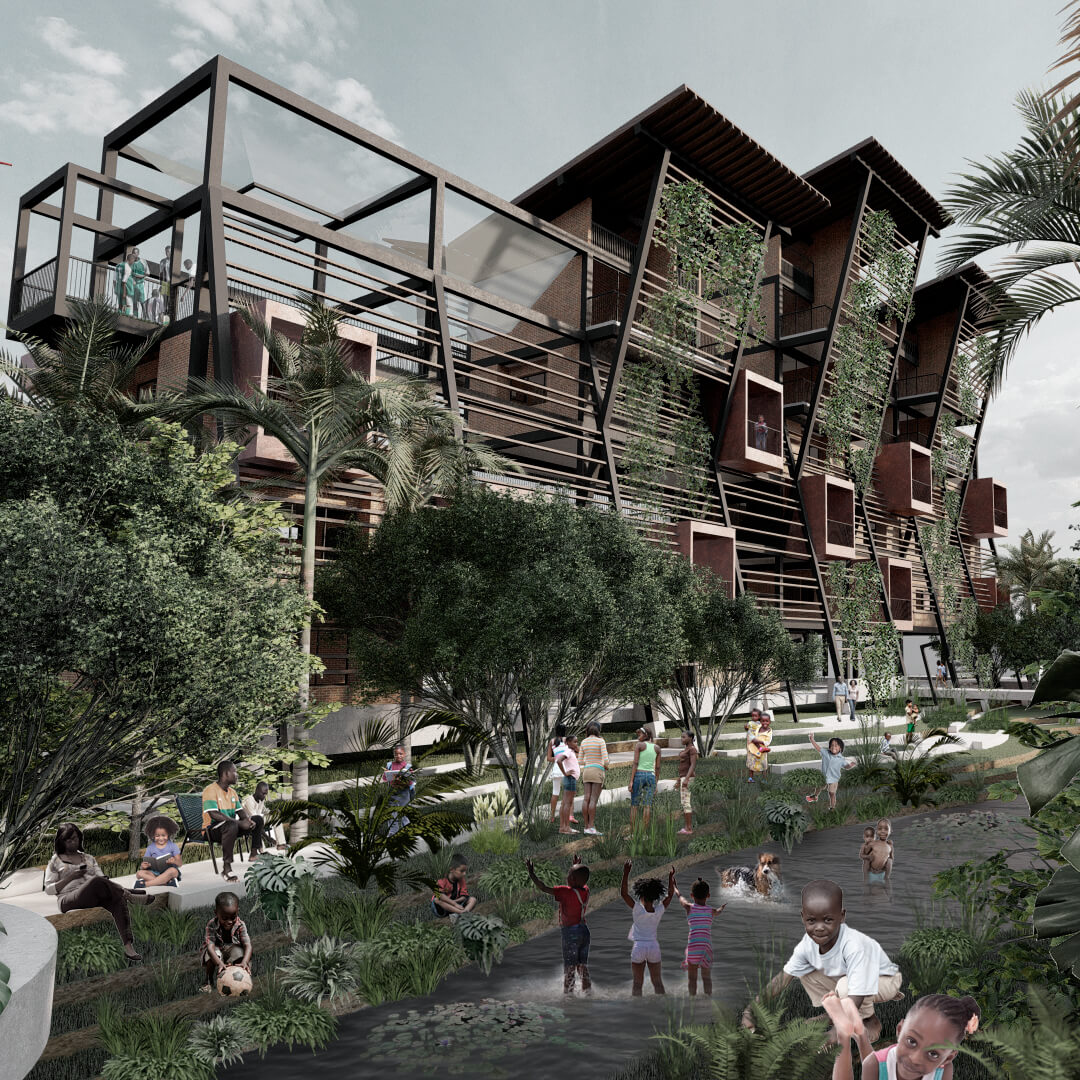Samuel Acevedo
The project seeks to reconnect the inhabitants of Turbo with their territory through water, creating an environment of resilience and environmental awareness.
The project stems from an environmental problem in the territory of Turbo: the wasteful use of water resources and the services they provide. The lack of access to drinking water and the precariousness of the city’s infrastructure do not allow a complete and quality supply for the inhabitants in some areas of the city. Turbo (Colombia) is a special port, logistics, industrial, tourist and commercial district, located 2 meters above sea level, bathed by the waters of the Atrato River and the Caribbean Sea.
It is a multi-scale project that is part of a master plan that seeks territorial connections for the innovation of the municipality. Under this premise, the equipment belongs to a unit of urban development action, which focuses on strengthening research, cultural and recreational activities for the community of Turbo, based on learning from a natural component, thus seeking to consolidate as part of the innovation district of the urban area. Its integration with the other units of the sector and the master plan is given by means of structuring of first order, both natural and artificial, intervening them hand in hand with sustainable technologies, looking for ways to adequately take advantage of natural resources and achieving an appropriation by the inhabitants towards the territory.
The equipment, then, does not function as an independent entity, but is part of this great urban and territorial system. It is located in the mediation of one of the fluvial bodies of the municipality: The Veranillo stream, promoting a floodable public space, implementing various techniques for cleaning it, and bringing citizens closer to the bodies of water, understanding that they must inhabit them and not avoid them. We propose a system of rain gardens in height inside the building that fragment uses, but gather knowledge. These are responsible for treating water through phytoremediation processes and implementation of plants with cleaning properties, to promote environmental culture and create bonds of reconciliation between inhabitant and territory.
The building is raised on piles that allow the natural functioning of the base plane and its modifications due to the sedimentation generated by the pipe, and in turn makes the building functional even in times of flooding. As few ground supports as possible are used in order to facilitate its development in technical and economic terms, and this in turn allows for more permeable area in the lower area to absorb the water. The facility proposes spaces for awareness, learning, research and knowledge about water, such as environmental classrooms, laboratories, workshops and testing areas, all supported by various technologies used in the building and the public space.
It also has spaces for light lodging, mainly to serve universities, local and international entities, scientists and researchers who contribute to create this great network of environmental education and require temporary stay, but it can also be adapted to create temporary shelters for families affected by floods and climatic phenomena. The project is awareness, is resilience, is education.
Author: Samuel Acevedo.
Location: Turbo, Colombia.
University: Universidad Pontificia Bolivariana de Medellín.
Year: 2021
